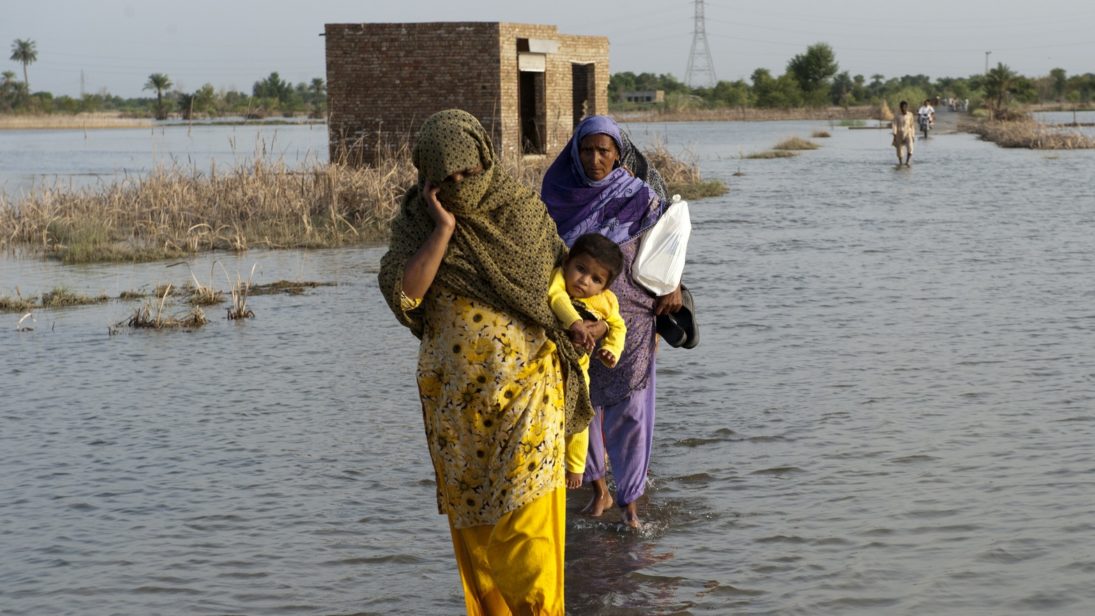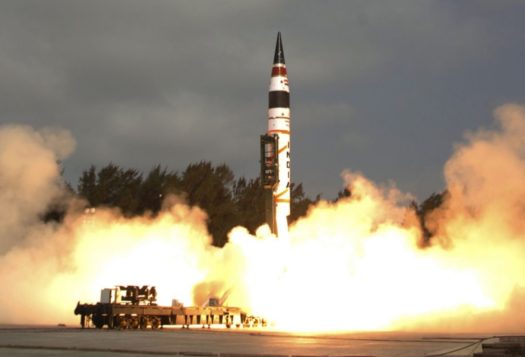
In 2010, a Congressional Research Service report entitled Security and the Environment in Pakistan argued that environmental pressures such as food insecurity, water scarcity, and the limited availability of arable land could “contribute to Pakistan’s decline as a fully functioning state” and could eventually lead to the expansion of extremist groups in the country. To put this into further context, Germanwatch, a non-governmental organization (NGO) focusing on international development and climate issues, ranked Pakistan as the seventh most impacted country by climate risks from 1996 to 2015, with a total cost to its economy of $3.8 billion. In this regard, the recently-passed Pakistan Climate Change Act, 2016 is a critical step in the right direction.
As announced by Minister of Climate Change Zahid Hamid, the recent law creates three new institutions to address the growing dangers of climate change: 1) the Pakistan Climate Change Council, 2) the Pakistan Climate Change Authority, and 3) the Pakistan Climate Change Fund. The Climate Change Council, chaired by the prime minister, will serve as the broad policy-making and regulatory body for Pakistan’s future climate change policies. The Climate Change Council will receive recommendations from the Climate Change Authority, which will formulate policies, mitigation plans, legislation, and implementation standards needed for sustainable development in Pakistan. Furthermore, it will raise awareness among the Pakistani population about the dangers of climate change. The Climate Change Authority will be comprised of outside professionals with at least fifteen years of experience in fields relating to climate change and environmental policy. Minister Hamid’s emphasis on staffing the Climate Change Authority with officials appointed on merit suggests a genuine focus by Pakistan’s government to grapple with climate change issues effectively. Finally, the Pakistan Climate Change Fund will be made up of donations and grants, as also funds derived from Climate Change Authority projects. The Climate Change Fund, managed by the Climate Change Authority, will redistribute funds toward additional projects and research.
The Climate Change Fund, in conjunction with the Climate Change Council and the Climate Change Authority, will increase international confidence in Pakistan’s seriousness to address the impacts of climate change within its borders and could create opportunities for international investment. For example, the European Union, the largest investor in climate finance, has strongly emphasized its commitment to invest in the capability of developing countries to deal with climate change with investments totaling $15 billion in 2014 alone. If Pakistan can show positive results in programs emerging from its recent legislation in conjunction with existing programs such as Reducing Emissions from Deforestation and Forest Degradation (REDD), it can place itself in a strong position to receive further investments from the Green Climate Fund (which has a goal of raising $100 billion a year till 2020) that came out of the 2009 United Nations (UN) climate negotiations in Copenhagen. Active participation in international forums, such as the 46th session of the Intergovernmental Panel on Climate Change (IPCC) in Montreal this September, will strengthen the case for further investment, especially if Pakistan is fully prepared to present its vulnerability to climate change to environmental experts.

Considering the recent changes, Pakistan is going in the right direction on climate policy. Nonetheless, it is prudent to highlight some of the great challenges Pakistan faces. First, the average Pakistani citizen does not appear to take climate change seriously. For example, survey data from 2015 by the Pew Research Center indicated that Pakistanis are less concerned about climate change than the majority of the forty countries polled; this included many other countries in the Asia-Pacific including China, India, Indonesia, and Malaysia, among others. Although the Climate Change Authority will endeavor to reverse this statistic, it is interesting to consider what role the Pakistani media could to play to teach the nation about the dangers of climate change. Second, Pakistan needs a proper water management policy to deal with water insecurity. As one of the most water-stressed countries in the world, Pakistan must prioritize policies to address water scarcity as an immediate concern. Finally, climate change is a trans-boundary threat; therefore, combined regional initiatives are also required to make substantive progress against climate change. Whether through the South Asian Association for Regional Cooperation (SAARC), the UN, or other means, Pakistan must cooperate with other countries in the region to address climate change.
With Pakistan finally appearing to take the threat of climate change seriously, its efforts towards climate change mitigation could make a substantive difference for future generations. However, this will require sustained commitment to the implementation of climate change policies in their true letter and spirit in the long term. Whether through international investment or regional cooperation, Pakistan must also draw upon global resources and cooperation to further its progress against environmental pressures at home, such as water scarcity. Hopefully, Pakistan’s recent legislation can serve as a launching point for many of these endeavors.
***
Image 1: Flickr, Asian Development Bank
Image 2: Flickr, Global Water Partnership


